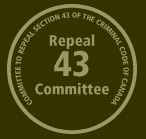![]()
Smokers - the new deviants
The Toronto Star, (Canada's largest daily newspaper) SPECIAL TO THE STAR, PATRICIA PEARSON, Aug. 20, 2006
"Smokers need not apply," ran a classified ad for a job in Ireland this past May.
"Why not?" asked Catherine Stihler, a British Labour party MEP, who posed the question on behalf of one of her constituents. Should women not apply, either? Or homosexuals? Muslims? What about high-functioning alcoholics, or fat people?
The answer, from the European Commission that oversees anti-discrimination legislation in the EU, came back to Stihler this month: Smokers are fair game for discrimination.
"A job advertisement saying that `smokers need not apply' would not seem to fall under any of the prohibited grounds (under EU legislation)," Vladimir Spidla, the commissioner for employment and equal opportunities, wrote to Stihler, who showed the letter to the press.
This would have pleased the employer who placed the ad, call-centre director Philip Tobin, who reportedly told Irish radio in May, "If these people (meaning smokers) can ignore so many warnings and all that evidence then they haven't got the level of intelligence that I am looking for. Smokers are idiots."
In other words, if you're addicted to nicotine, a substance that studies have repeatedly shown to be more difficult to withdraw from than heroin, you're too dumb to answer the phone.
Joni Mitchell need not apply. Kurt Vonnegut doesn't have the brains to say, "How may I help you?" Peter Jennings, thick as a plank. C.S. Lewis, T.S. Eliot, Oscar Wilde, Winston Churchill inferior minds all around.
And we believe this. We've bought into it because health is now the basis of our prejudices. We judge one another's conduct according to how well we maintain ourselves physically.
It isn't confined to smoking. British surgeons have begun to refuse doing certain operations for obese patients. Women who drink more than a glass of wine a day are made to feel they're alcoholics. Mothers who choose not to breast-feed are castigated as if they were amoral.
The objective of life, in this health utopia of ours, is to live it as long as possible, in mechanically perfect condition. Compare that to previous utopian cultures, where the objective of life would have been, variously, to be honourable, or spiritually sublime, or warrior-like or, in the case of Communism, a humble devotee of collective economic well-being: an impeccable worker ant.
Consider, by contrast, how AIDS activists have turned around the stigma of their affliction. How someone contracted HIV doesn't matter.
Every culture with a utopian vision has its officially acknowledged deviants.
The Ontario government's anti-smoking website is addressed http://www.stupid.ca. It's for stupid people. Deviants addicted to nicotine.
The degree to which we have turned an addiction into a moral failing really came home to me last year when Peter Jennings died of lung cancer. On his last ABC news broadcast, when he announced his diagnosis, he explained to his viewers that he had quit smoking 20 years earlier but had fallen off the wagon after 9/11. He apologized. He actually apologized for dying of cancer.
Imagine if Jennings had said on the air: "I've got lung cancer, but I enjoyed every cigarette I ever smoked, and my life has been really full and interesting. Live fast and die at 67."
It would have been viewed as an apostasy.
Consider, by contrast, how AIDS activists have so successfully turned around the stigma of their affliction. How someone gay or straight, male or female, young or old contracted HIV doesn't matter. As The New York Times reported, in a lead-up to the Toronto AIDS conference, "In 1996 in Vancouver, the audience cheered after a grandmother told the conference: `How did I get infected? The answer is very simple: It just doesn't matter.'"
How do smokers, young or old, get addicted to nicotine? A new study out this month by McGill University epidemiologist Jennifer O'Loughlin shows that some people are so susceptible to nicotine that they can begin to crave the substance after one cigarette. One cigarette. One shared needle. One night of unprotected sex. It just doesn't matter.
In the last several years, the U.S. has made available to smokers a huge arsenal of nicotine-replacement therapies, such as the lozenge, a nasal spray, and a new pill called Chantix that blocks nicotine reception in the brain, none of which is available in Canada. The Americans run in-patient rehab programs for nicotine addiction. We Canadians run public-service ads in movie theatres specifically produced to demonstrate that smokers are knuckleheads.
Are we seriously committed to helping people wrest free of nicotine? Or are we writing them off as deviants?
What the EU discrimination ruling about the Irish call centre reveals is that the door is wide open for health discrimination in the upcoming decade. Until we snap out of it and realize that there's Read More .. life than its length, we are in for a whole new wave of prejudice.
Patricia Pearson is a freelance journalist in Toronto.

Don't Spank - Canadian Paediatric Society
Effective discipline for children
Reaffirmed: February 1, 2014
Principal author(s)
P Nieman, S Shea; Canadian Paediatric Society, Community Paediatrics Committee
Paediatric Child Health 2004;9(1):37-41
The word discipline means to impart knowledge and skill - to teach. However, it is often equated with punishment and control. There is a great deal of controversy about the appropriate ways to discipline children, and parents are often confused about effective ways to set limits and instill self-control in their child.
In medical and secular literature, there is great diversity of opinion about the short-term and long-term effects of various disciplinary methods, especially the use of disciplinary spanking. This statement reviews the issues concerning childhood discipline and offers practical guidelines for physicians to use in counselling parents about effective discipline.
The Canadian Paediatric Society recommends that physicians take an anticipatory approach to discipline, including asking questions about techniques used in the home. Physicians should actively counsel parents about discipline and should strongly discourage the use of spanking.
![]()
Spanking May Lead to Aggression Later in Life
ABC TV, USA
07 February, 2012
Physical punishment of children, such as spanking, is increasingly linked with long-term adverse consequences, researchers wrote.
An analysis of research conducted since the 1990 adoption of the UN's Convention on the Rights of the Child suggests that no studies have found positive consequences of physical punishment, according to Joan Durrant of the University of Manitoba in Winnipeg, and Ron Ensom of the Children's Hospital of Eastern Ontario in Ottawa.
While some studies have found little effect either way, most research has uncovered a range of negative outcomes, including increased aggression and later delinquency, Durrant and Ensom wrote online in CMAJ.
The clinical implication, they suggested, is that doctors who are familiar with the research can help parents find more constructive ways of providing discipline.
"In doing so, physicians strengthen child well-being and parent-child relationships at the population level," they wrote.
They noted that as recently as 1992, physical punishment of children was widely accepted, thought of as distinct from abuse, and considered "appropriate" as a way of eliciting desired behavior.
But research under way at that time was beginning to draw links between physical punishment and aggression in childhood, later delinquency, and spousal assault.

The Supreme Court of Canada -
Cour suprême du Canada
Corporal Punishment of Children Decision

Alyson Schafer on Spanking and Corporal Punishment of Children
Alyson Schafer is a psychotherapist and one of Canada's leading parenting experts. She's the author of the best-selling "Breaking the Good Mom Myth" (Wiley, 2006) and host of TV's The Parenting Show a live call-in show in Toronto, Ontario.
The media relies on Alyson's comments and opinions. you can find her interviewed and quoted extensively in such publications as Cosmopolitan, Readers' Digest, Canadian Living, Today's Parents, and Canadian Families.
You can read Alyson's thoughts.

Parenting style can change child behaviour
CTV.ca News Staff, February 21, 2005
Parents who are punitive tend to have aggressive children. But a new survey suggests that when parenting practices change, a child's behaviour also changes.
The results of the National Longitudinal Survey of Children and Youth (NLSCY) suggests children show higher levels of aggression, are more anxious and less altruistic when parents have a more punitive parenting style.
Other countries don't allow assaults on children
Like Britain, countries such as Sweden, Finland, Norway, and Austria had a defence to assaults on children similar to our s. 43. These defences were removed between 1957 and 1977. The criminal law of these countries therefore gives children the same protection from assault as it gives adults. Beginning with Sweden in 1979, these countries also amended their civil child welfare laws to expressly prohibit corporal punishment so that the public fully understood it was illegal.

Public Health
October-December 2006
Spanking: It hurts more than you think
Spanking hurts more than you think is an early child development public education campaign that includes TV ads to remind parents that spanking is hitting and never a positive way to discipline your child.
Parenting is very rewarding, but nobody ever said it was easy. There are ups and downs, and both you and your child will make mistakes along the way. That's okay. You're not alone.
One of the major challenges you might face is discipline. When your child's behaviour pushes you to the edge, how do you handle it? Do you see spanking as a solution?
Read about: The problem with spanking
Reasons not to spank
Why discipline works. Use discipline to encourage good behaviour
Use discipline when your child misbehaves
Remember
Making it work Brochure, Posters "Take 1" Information Sheet Media Links for
more parenting information
website link
click here

Committee to Repeal Section 43 of the Criminal Code of Canada Which Allows Hitting Children to "Correct" Them
The Repeal 43 Committee is a national, voluntary committee of lawyers, paediatricians, social workers and educators formed in 1994 to advocate repeal of section 43 of the Criminal Code of Canada.
It is an offence under our Criminal Code to use force against anyone without their consent. This right to personal security is the most fundamental of all human rights. It is a protection against assault that all adults take for granted.
Children do not have the full benefit of this protection because section 43 of the Criminal Code justifies hitting children for disciplinary or "correction" reasons. This violates a child's right to the equal protection and benefit of the law guaranteed by our Canadian Charter of Rights and Freedoms.
It contravenes the United Nations Convention on the Rights of the Child. It violates a child's dignity and shows a lack of respect. It can lead to serious physical and emotional harm.
Over 400 organizations from across Canada that deal with children are against corporal punishment www.Repeal43.org


